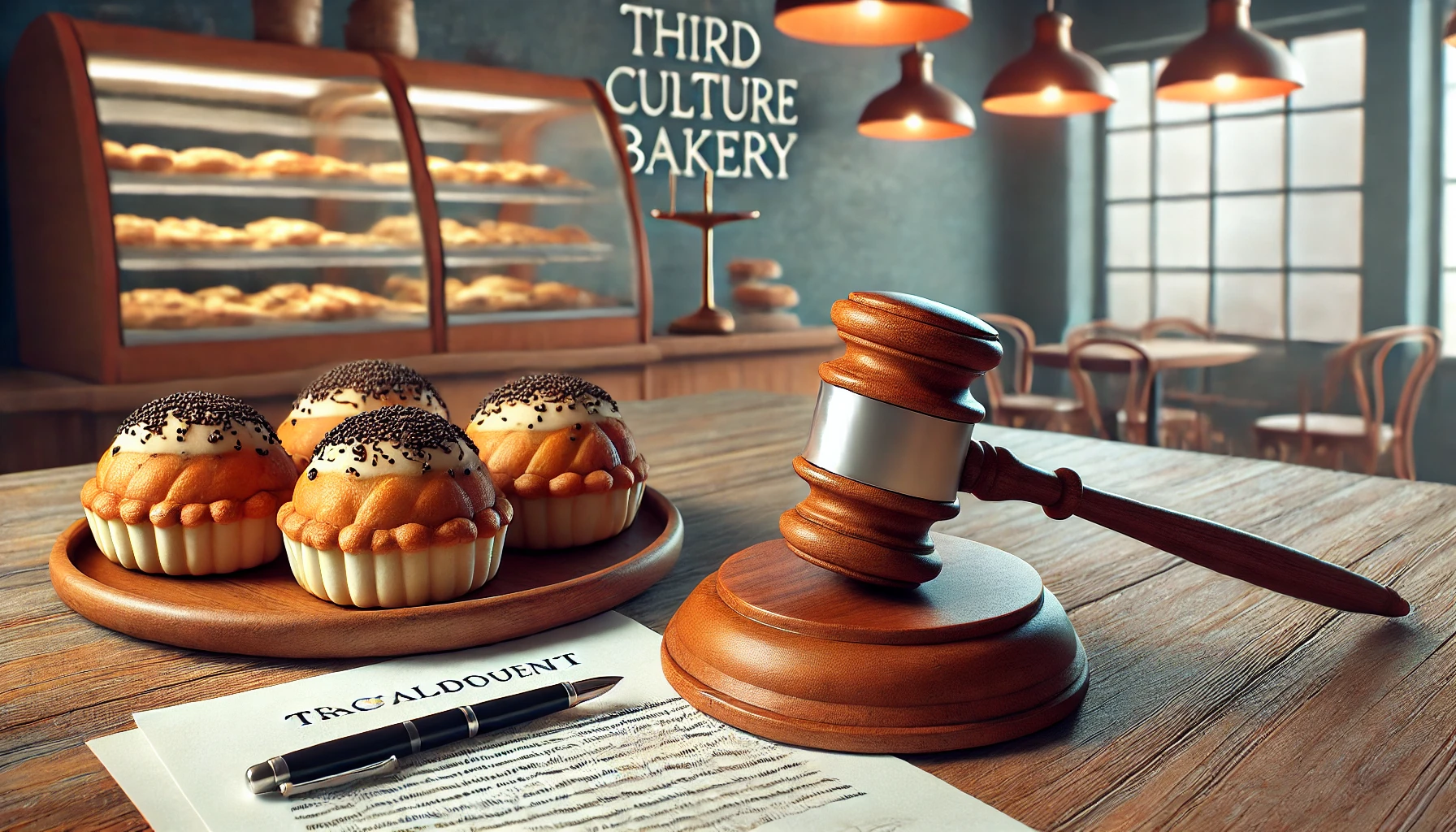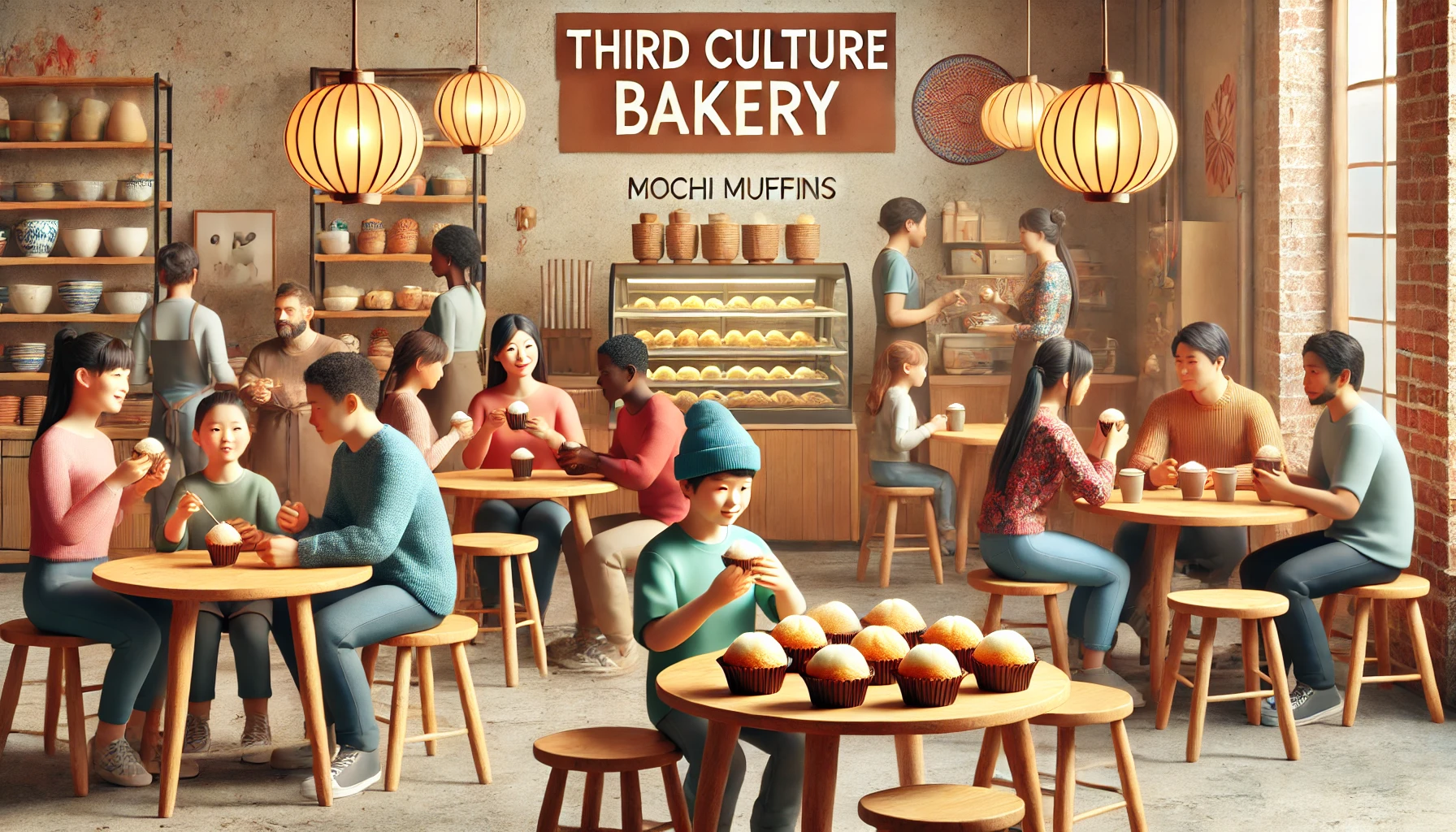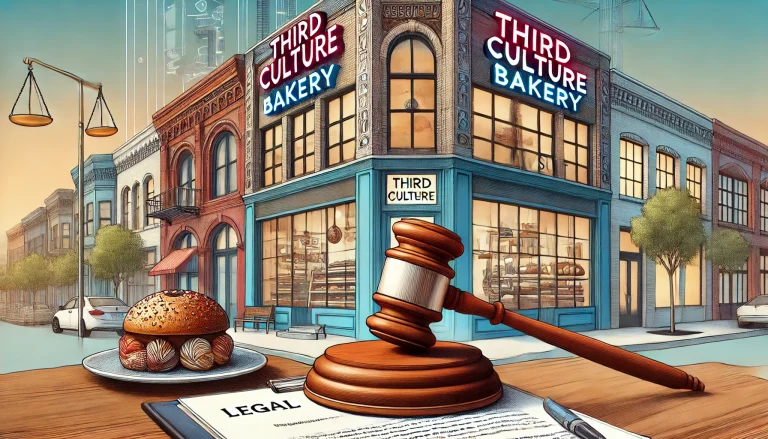The story of the Third Culture Bakery lawsuit offers valuable insights into the challenges businesses face when protecting their creations while respecting cultural heritage. This case highlights the complexities of intellectual property rights, particularly in the food industry, where recipes often have deep cultural roots.
Third Culture Bakery Lawsuit: A Case of Culinary Innovation and Controversy
The Third Culture Bakery lawsuit became a focal point in the food industry, highlighting the challenges of blending innovation with cultural heritage. At the center of the controversy was the bakery’s decision to trademark the term “mochi muffin,” a product that had gained immense popularity for its unique flavor and texture.
Third Culture Bakery, founded in 2016 in California, sought to protect its signature creation by securing legal rights to the name. While this move was intended to safeguard their brand from imitation, it sparked criticism from the public and culinary community. Many argued that the mochi muffin, inspired by Japanese culinary traditions, was not an entirely original concept. Critics viewed the trademark as an attempt to monopolize a shared cultural creation, raising ethical questions about intellectual property in the food industry.
The backlash prompted Third Culture Bakery to relinquish the trademark, acknowledging the concerns of the community. This decision reflected a broader challenge for businesses in respecting cultural roots while protecting their innovations. The case underscores the importance of balancing legal protections with ethical considerations, especially in industries where cultural inspiration plays a significant role.
Ultimately, the Third Culture Bakery lawsuit serves as a learning experience for businesses navigating the intersection of creativity, culture, and intellectual property. It reminds us of the delicate balance required to innovate while honoring the origins of the ideas that inspire us.
About Third Culture Bakery
Third Culture Bakery was founded in 2016 by Wenter Shyu and Sam Butarbutar in Berkeley, California. The bakery’s name reflects its mission to celebrate the “third culture” experience—blending elements of traditional Asian and modern American influences. Known for its innovative approach, the bakery quickly became a favorite for its unique desserts that appeal to a diverse audience.
The Mochi Muffin: A Signature Creation
One of the bakery’s most iconic creations is the mochi muffin, a chewy, flavorful treat inspired by Japanese mochi and shaped like a traditional muffin. Made from rice flour and coconut, the muffin’s rich flavor and distinctive texture helped it stand out in a crowded dessert market. Customers loved the product for its originality, and it became a symbol of the bakery’s brand identity.
Recognizing the success of their creation, Third Culture Bakery trademarked the term “mochi muffin” in 2018. The founders viewed this as a way to protect their innovation and prevent others from copying or diluting their brand.
Trademark Enforcement and Backlash
After securing the trademark, Third Culture Bakery began enforcing its rights by sending cease-and-desist letters to other businesses that used the term “mochi muffin” to describe similar products. While legally valid, this move sparked significant controversy.
Critics argued that the mochi muffin was not an entirely original concept but rather a product deeply rooted in Japanese culinary traditions. Many viewed the enforcement as an attempt to claim ownership over a shared cultural creation, which they believed belonged to a broader community rather than a single business.
The backlash grew quickly, with the culinary community and general public voicing their disapproval. Many accused the bakery of stifling small businesses and cultural expression for profit. The controversy raised broader questions about the ethics of trademarking culturally inspired dishes.
Relinquishing the Trademark
In response to the criticism and growing public pressure, Third Culture Bakery decided to relinquish its trademark on “mochi muffin.” The founders acknowledged the community’s concerns and expressed a desire to rebuild trust. While this decision meant giving up legal protection for their product name, it was widely seen as a step toward reconciling with their critics and demonstrating respect for cultural heritage.
The decision to drop the trademark was both practical and symbolic. It reflected an understanding of the balance businesses must strike between protecting their creations and honoring the cultural significance of the ideas they draw from.
Legal and Cultural Implications
The Third Culture Bakery lawsuit sheds light on important issues at the intersection of law, business, and culture:
- Trademarking in the food industry: Recipes and dishes are often inspired by cultural traditions, making it challenging to claim exclusive ownership. Legal protections must account for this complexity.
- Cultural appropriation vs. innovation: Businesses must navigate the fine line between drawing inspiration from a culture and commercializing it without acknowledgment.
- Public perception: How a business handles such disputes can have lasting effects on its reputation and customer relationships.
This case is part of a larger conversation about intellectual property in the culinary world. As food increasingly crosses cultural boundaries, the question of who owns a recipe becomes more difficult to answer.
Lessons for Businesses
The Third Culture Bakery case offers several lessons for food entrepreneurs and businesses:
- Respect cultural origins: Acknowledging and celebrating the cultural roots of a product can help businesses avoid accusations of appropriation.
- Be mindful of public response: The court of public opinion can be just as influential as legal decisions in shaping a company’s future.
- Balance protection and ethics: While protecting unique creations is important, businesses should consider the broader cultural and ethical implications of their actions.
Conclusion
The Third Culture Bakery lawsuit highlights the challenges of blending innovation with cultural respect in the globalized food industry. While the bakery initially sought to protect its creation through trademark enforcement, the backlash demonstrated the risks of overlooking cultural sensitivities. By relinquishing the trademark, Third Culture Bakery took a step toward addressing these concerns and fostering goodwill.
This case serves as a reminder that businesses can thrive by finding harmony between legal protections, ethical practices, and cultural appreciation. As food continues to connect people across cultures, respecting the origins of culinary creations will remain an essential part of building a sustainable and inclusive industry.
FAQs
Why did Third Culture Bakery trademark “mochi muffin”?
To protect their unique product identity and brand from being copied by competitors.
What sparked backlash against Third Culture Bakery’s trademark enforcement?
Critics felt it monopolized a culturally significant dessert rooted in Japanese culinary traditions.
Did Third Culture Bakery keep the “mochi muffin” trademark?
No, they relinquished it in response to public criticism and ethical concerns.
What lessons can businesses learn from this lawsuit?
Balance innovation with cultural respect and be mindful of public perception in trademark disputes.
How did the lawsuit impact Third Culture Bakery’s reputation?
Initially negative, but their decision to drop the trademark helped rebuild trust within the community.
Article Recommendations
Abilene Asbestos Legal Question: How to Identify, Handle, and Seek Justice for Asbestos Exposure
Vermont Mesothelioma Legal Question: How Vermont’s Statute of Limitations Impacts Your Case




